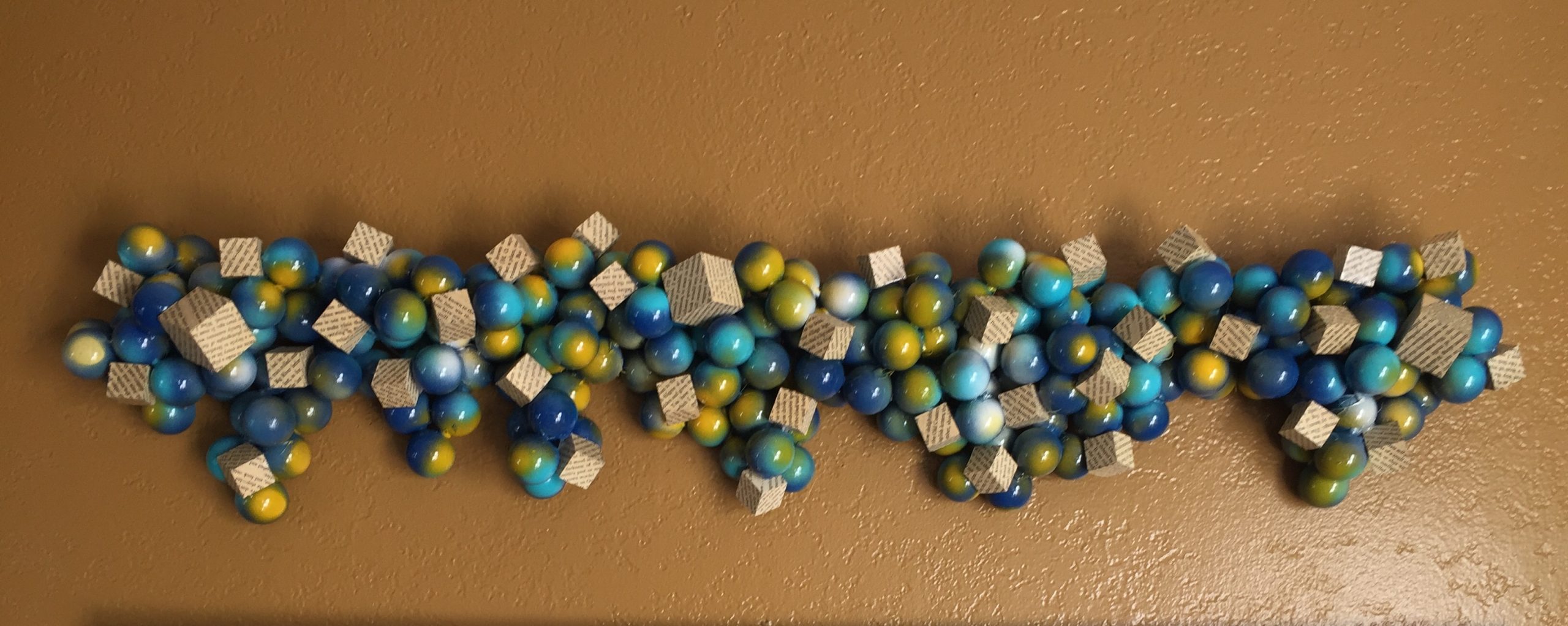Feature art and image courtesy of Christopher Wiley.
Leo Tolstoy played chess. Madeleine L’Engle played the piano. Jane Austen played cards. Mark Twain was into scrapbooking and inventing–he combined these two hobbies to invent the scrapbook with adhesive pages.
This week, I want to encourage you to get away from your desk and out of the house. All writing and no living makes for some dull fiction. Hobbies, outside interests, physical activity–all these things will make you a better writer. Some of the best hobbies for writers include reading, traveling, photography, and people watching. Any of these activities will expand your ideas about the world and help you to see the world and the people in it from a different perspective. They will also fill your mental arsenal with images, sounds, and smells.
I’ve lately been fascinated with asking my writer friends what they do when they aren’t writing, and the results both surprised and delighted me. I got a few more responses in recent weeks, so here’s an encore post–five more writers and their other interests. I hope these inspire you to take some risks, take a break from writing, and seek out more fun in your own life.
Linda Romano: Writer, Cyclist & Runner:
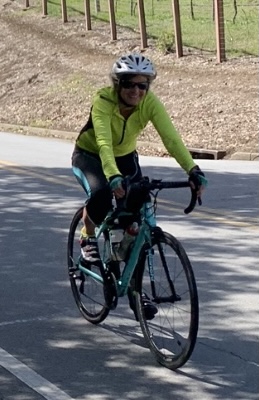
Writer Linda Romano escaping her desk for a bike ride.
Observing the environment stimulates my creative process and helps me focus. When an idea feels important, instead of relying on memory, I try to jot it down somewhere. If not in a small notebook that I keep in my car, then texts or emailed notes to my phone. The phone has become an easy way to talk to myself!
Biking, running, and most outdoor activities have kept me sane over the years from events that occurred early in my childhood. I was fortunate to grow up in the beginning of Title IX when sports for girls were more available. It became an opportunity to engage in a community activity with a sense of comradeship, especially with other girls and women. Since then, I have learned to use physical activity as an escape to reengage my mind on new thoughts and avoid mental tailspins. More recently it has been an opportunity to engage with people of all ages. When I return to my desk and write, it feels like a fresh start. A sentence can take on a new form. A new idea may be triggered that wasn’t present earlier. Even a walk around the block can make a difference.
When she isn’t taking a spin around Northern California, writer and engineer Linda Romano is hard at work on her memoir.
Joe Garrity: Writer, Director & Improviser:
I got into improv, trepidatiously, as a writer first. Previously I had considered improv a sport only for professional actors, capital P Performers. I learned through watching many live shows during a semester in New York what a wide range of people took part in the practice: introverts, extroverts, listeners, talkers, leaders, followers. And I learned that none of these attributes actually belonged to anyone forever. We each contained multitudes. Shortly after college I stepped into my first improv course, a night class held at the Berkeley YWCA with retirees and computer programmers. I was terrified but slowly became acclimated to the central idea: courting terror. Disarming it. Practicing equanimity. Through one class, into another, from a theater in San Francisco to one in New York, I followed a winding path toward a friendlier relationship with my imagination. It became easier to reserve judgement, to honor feeling, to sit in uncertainty. To really laugh. Now I find myself in Los Angeles, studying at The Groundlings theater just down the street from me, where so many of my heroes have trained. I’m right where I want to be, in a scene I couldn’t have written.
Joe Garrity is a writer, director, and editor originally from the San Francisco Bay Area. He wrote, directed, and starred in the award-winning short film Twinsburg. Joe is directing Sunday Night at Jane’s by playwright Emily Powers for this year’s Hollywood Fringe Festival. Tickets go on sale May 1st.
Christopher Wiley: Writer & Artist
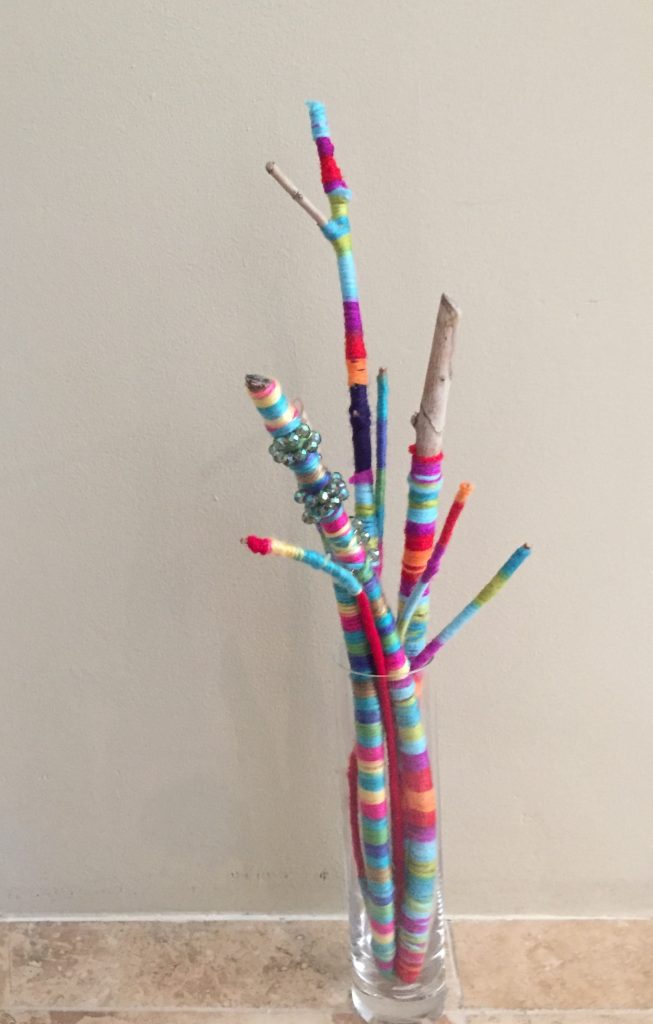
Art and photography by Christopher Wiley.
Sensory experiences spark inspiration for me. Creating art becomes tactile, visual and problem-solving encounters for my brain. It is relaxation, a brief vacation from the assemblages of words on a blank page. It encourages uninhibited mind wandering that allows me to tap into unfiltered thoughts, ideas and feelings. Art also makes good practice for experimentation. I’d say that my art is craft-oriented, relying on mostly found objects and materials. Discovering and using found things for art projects gets me to see these discarded objects in a new way. Putting unusual or unlikely objects together in the physical world is a great exercise for expanding a writer’s mind. It cultivates my writer’s third eye that urges me to see—and express—the world clearly and creatively.
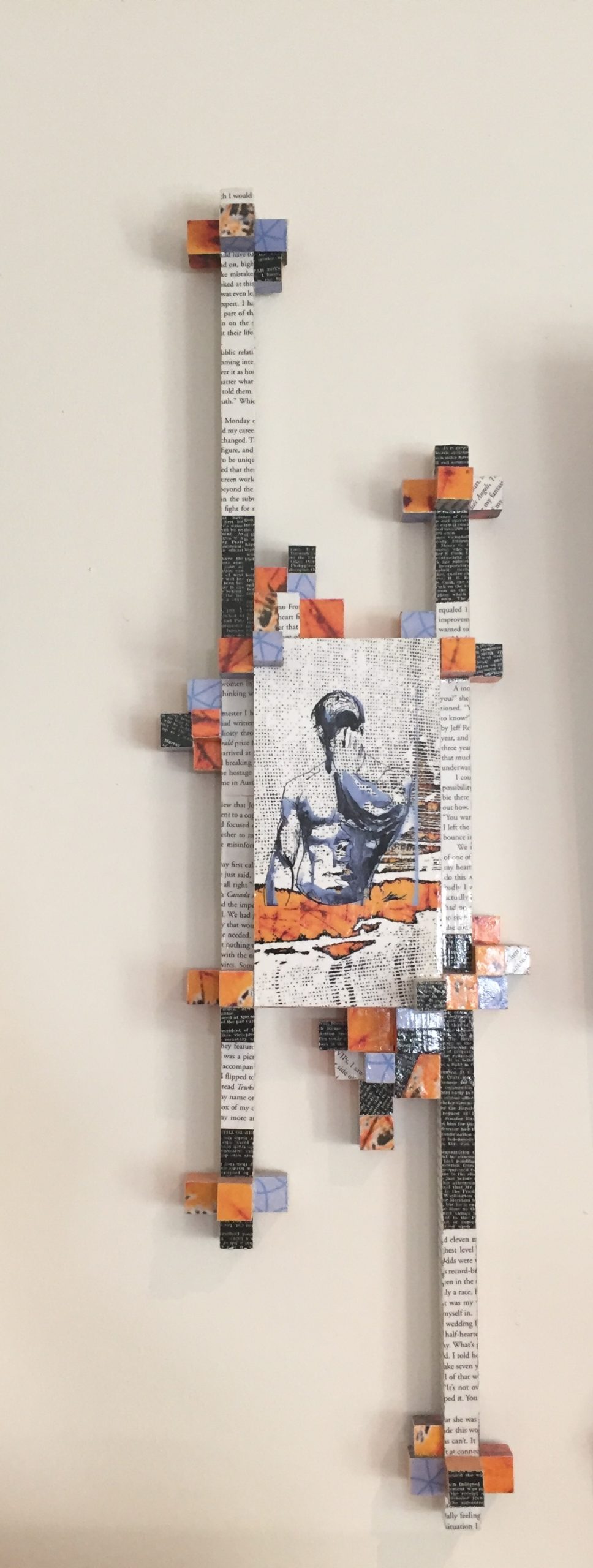
Art and photography by Christopher Wiley.
Christopher Wiley’s short play Irreversible Binomials recently premiered at The Post Theatre Company at Long Island University. Several of his poems recently appeared in Bending Genres and Peculiar.
Lindsay Jamieson Gallagher: Writer, Pianist & Snowboarder:
Playing the piano provides a perfect break when I’m writing. I mainly play the same few pieces (occasionally I learn something new, and an old favorite drops off the rotation), so practicing has an immediate effect; I can hear myself improve. Unlike with writing, I know the notes, so I can change the tone, the pace, the emotion. That resets my brain.
I can’t do this as often, but I also love to snowboard. How else can one access a snow-covered Narnian forest? On snowy tree days, I’m through the wardrobe, which will never stop being my ultimate fantasy. Also, when I’m in extreme terrain, which I prefer, I am one hundred percent in the moment. I’m a chronic overthinker, so the sudden silence in my brain is a tremendous relief. Sometimes this happens when I write, but not as frequently; danger forces the switch. I tend to have lots of ideas after I access that (underused) portion of my brain. And more optimism. At the top of a giant mountain, there’s no past (regrets) and no future (worries)—there’s only that rock and that cliff and that tree.

Lindsay Jamieson Gallagher‘s short story “Family Map” recently appeared in Kelp Journal.
Mick Guinn: Writer, Recording Artist, Gardener, Cyclist, Polymath ….
I was told recently (by a professional who should know) that my curse is I’m a polymath, which has nothing to do with math, which is good because I’m just “okay” at math, unless it’s financial woe math where I’m wont to articulate and exaggerate in great algebraic detail––which still doesn’t make me good at math––but doesn’t rule out the possibility of polymath. It could just be my ADHD. However, if the polymath diagnosis is correct, it may explain why my careers and pastimes are strewn all over the place like socks that never made the hamper.
As a recording artist and lyricist of questionable talent, I often unconsciously create wildly rhyming sentences with cadences like dances that call too much attention to themselves. All the while, pining for something more akin to the liquidity of lyrical prose to drop on the page. Most of the time when my butt is bolted to the chair as instructed, weeds call me out of it. The pullable, not smokable, kind. Gardening’s in a different part of what’s left of my brain, giving the write brain a rest. I’m particularly obsessed with pruning, which feels like editing. Cycling sans earbuds does something similar. That’s when I hear the voices. I used to throw pots for the same unthinking reason. I guess the best pastimes for me are ones that use the unused parts of my brain. Or the knees I need to take a walk with now.
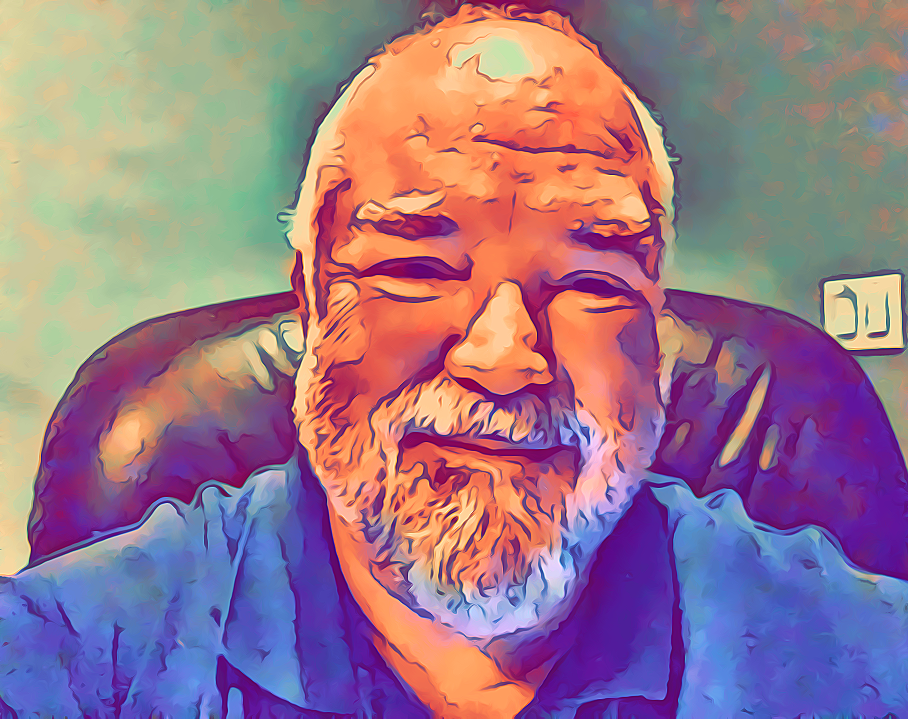
Mick Guinn is unsurprisingly unpublished at this time, but currently completing work on a 3000-page coming-of-age memoir titled, Based on a True Story, which he hopes still is.

